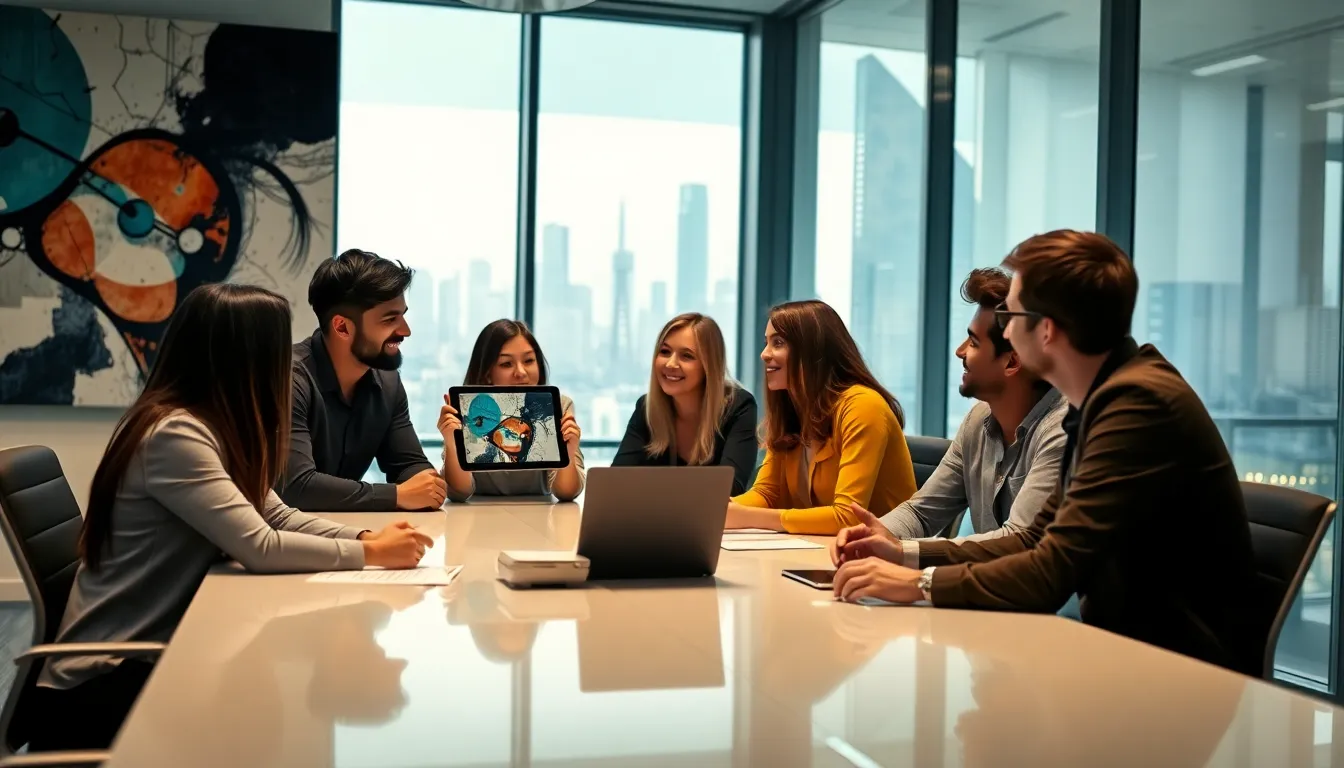Table of Contents
TogglePop culture isn’t just a buzzword tossed around in coffee shops or during endless debates about the best superhero movie. It encompasses the music you jive to, the Netflix series you binge-watch, and even those peculiar TikTok dances that seem to take over your feeds every other week. In a way, pop culture acts like a snapshot of society, reflecting desires, trends, and even the occasional cringe-worthy moment. So, what does it mean? Buckle up, because we’re about to navigate this intriguing realm, mixing humor with insight as we jump into the meaning and significance of pop culture.
Defining Pop Culture

Pop culture, or popular culture, is the set of ideas, practices, beliefs, and phenomena that are prevalent in mainstream society at a given point in time. Unlike high culture, which might include classical art or opera, pop culture is accessible and appeals to the masses. Think of it as the stuff that keeps an average Joe happily entertained on a Friday night, like catchy songs, blockbuster films, or viral memes. It’s constantly evolving, influenced by ever-changing social, political, and technological landscapes, ensuring that it reflects contemporary life.
At its core, pop culture acts as both a mirror and a mold for society. It mirrors the collective attitudes, aspirations, and norms of the populace, while also molding these elements through various forms of media. When analyzing what pop culture means, one has to consider how it shapes conversations, influences behaviors, and even defines generational identities.
Historical Evolution of Pop Culture
The roots of pop culture can be traced back to the early 20th century when mass media began to proliferate. The advent of radio stations in the 1920s marked a significant shift, allowing music and news to infiltrate the everyday lives of Americans like never before. Fast forward to the mid-20th century, and television became the ultimate pop culture powerhouse, showcasing everything from variety shows to groundbreaking sitcoms.
As decades passed, the evolution of technology brought forth new platforms, cassettes, CDs, and eventually, digital streaming. Each innovation expanded the ways people accessed music, film, and television. The 1980s saw the rise of MTV, introducing music videos that changed the landscape of how artists were marketed. By the 2000s, the Internet transformed pop culture once again, allowing for user-generated content and fostering movements that transcended borders.
So, the historical evolution of pop culture reflects the broader evolution of society itself, with each era, in its lust for information and connection, feeding into the next.
Key Components of Pop Culture
When one assesses what makes up pop culture, several key components come into play:
- Music: Genres like pop, hip-hop, and rock dominate charts, while underground sounds sometimes bubble up to become mainstream hits.
- Film and Television: Blockbuster movies and popular TV series are cultural staples, often generating memes and catchphrases that permeate everyday conversation.
- Fashion: Trends from designers and celebrities influence styles and attire globally, shaping the way people express their identities.
- Social Media: Platforms like Instagram and TikTok highlight trends in real-time, transforming individuals into cultural influencers overnight.
- Sports: Major events like the Super Bowl or the FIFA World Cup create immense cultural phenomena, uniting people across the globe.
Each component either directly influences the other or exists within a larger ecosystem that supports its popularity.
Influence of Pop Culture on Society
The impact of pop culture on society is profound. It not only entertains but also educates and provokes thought. For instance, movies explore social issues like race, gender, or economic disparity, often sparking dialogue that traditional discourse might struggle to address.
Besides, music often serves as a soundtrack for social movements. From the protest songs of the 1960s to the politically charged anthems of today, these cultural artifacts are more than just catchy tunes, they can rally people together for a cause.
Also, phenomena like pop culture fandoms create communities: whether through comic conventions or K-pop fan clubs, shared interests cultivate a sense of belonging. The global nature of pop culture today means that it’s not confined to a particular region and can inspire collective action across continents.
The Role of Media in Shaping Pop Culture
Media acts as the primary conduit for the dissemination of pop culture. Television, film, music, and social media platforms serve not just as broadcasts, but as active participants in constructing pop culture narratives.
Take media franchises, think Marvel or Star Wars. These juggernauts shape consumer habits, create fan culture, and generate an expansive universe of discussions. They set trends, whether it’s superhero cosmetics or themed merchandise, showing how pop culture can infiltrate and reshape consumerism.
Social media has been revolutionary in turning consumer engagement into active participation. It allows the average person to voice their opinions and share their creations, so expanding the landscape of what pop culture encompasses. Viral challenges, shareability of memes, and the immediacy of live broadcasts redefine audience interaction, making it a two-way street.
Case Studies: Iconic Pop Culture Moments
Exploring iconic moments in pop culture demonstrates its power:
- The Moon Landing (1969): This historic event not only captivated the world but also influenced films, literature, and even fashion for decades to come.
- Michael Jackson’s “Thriller” (1982): This iconic music video blended film and music in unprecedented ways, significantly impacting music video production.
- The Release of ‘Friends’ (1994): This sitcom became a cultural phenomenon, influencing fashion trends, language, and even tourist attractions in New York.
- The Rise of Social Media Influencers (2010s): Social media shifted the balance of cultural authority, with influencers shaping everything from beauty standards to political discourse.
Each of these moments encapsulates a transformative influence that resonates beyond its initial context, demonstrating how pop culture is introspective yet expansive.





